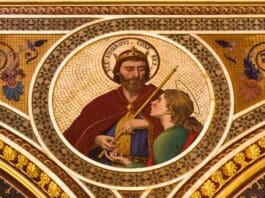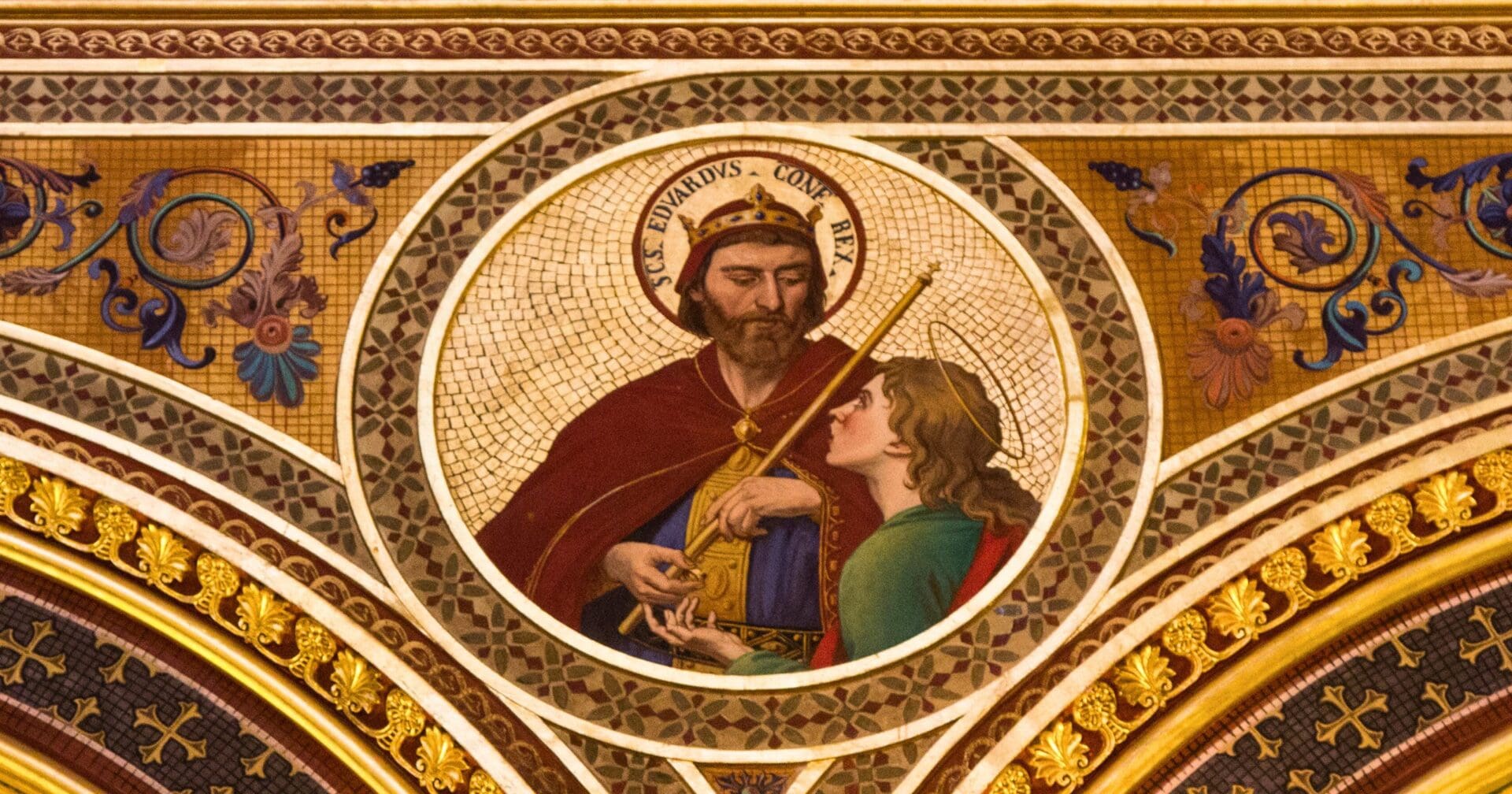
King Edward the Confessor was the offspring of King Ethelred III and the Norman princess, Emma, daughter of Duke Richard I of Normandy. Born in Islip, England, Edward’s early life was punctuated by the political tumult of his times. In 1013, when the Danes led by Sweyn and Canute invaded England, young Edward and his mother were sent to Normandy for safety.
While Canute cemented his position as the King of England by marrying Emma in 1016 after Ethelred’s demise, Edward grew up in Normandy, steeped in its culture and traditions. In 1042, following the death of his half-brother, Hardicanute (the son of Canute and Emma), Edward, with significant backing from the influential Earl Godwin, was crowned the King of England.
Edward’s reign saw both consolidation and conflict. In 1044, he wedded Godwin’s daughter, Edith, strengthening the ties between the monarchy and the powerful Godwin family. As a ruler, he was noted for his judicious governance, particularly his decision to relieve the kingdom of certain burdensome taxes. However, his Norman upbringing created tension between Godwin’s Saxon allies and the Norman lords, notably Robert of Jumieges. Edward’s preference for the Normans was evident when he appointed Robert as the Archbishop of Canterbury in 1051. This decision, among others, led to a confrontation with Godwin, resulting in the latter’s brief exile.
The political landscape remained volatile even after Godwin’s death in 1053, especially due to the ambitions of his sons, Harold and Tostig. While Tostig was ousted from Northumbria in a revolt in 1065 and subsequently exiled by Edward, Harold was designated as Edward’s heir, given the king’s lack of direct offspring.
In his later years, Edward’s focus shifted more towards his spiritual interests. His most notable legacy from this period is the construction of St. Peter’s Abbey at Westminster, the precursor to the modern-day Westminster Abbey. It is here that Edward was interred following his death on January 5. Owing to his deep piety, he was posthumously referred to as “the Confessor”. His devotion was recognized by the Church, and he was canonized in 1161 by Pope Alexander III. Today, his feast is celebrated annually on October 13.
Photo credit: Lawrence OP via Flickr
The post Saint Edward the Confessor appeared first on uCatholic.
Daily Reading
Memorial of Saints Basil the Great and Gregory Nazianzen, Bishops and Doctors of the Church
Readings for the Memorial of Saints Basil the Great and Gregory Nazianzen, Bishops and Doctors of the Church Reading 1 1 John 2:22-28 Beloved: Who is the liar? Whoever denies…
Daily Meditation
A Voice in Today’s WildernessUna voz en la jungla de hoy día
Click here for daily readings Today’s Gospel passage is especially relevant as we begin a new year with resolutions and hope. In this reading we hear John’s declaration echoing the…




